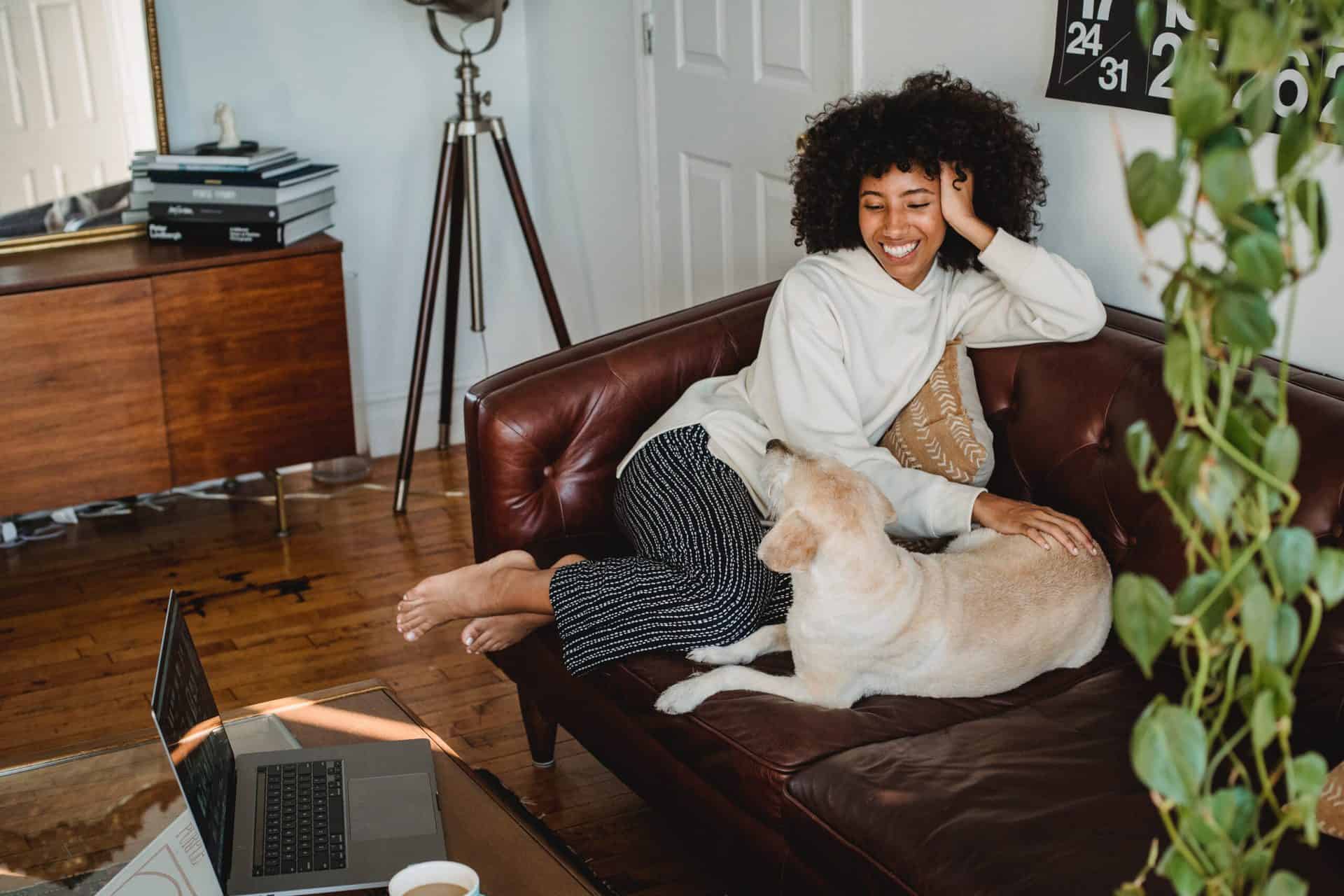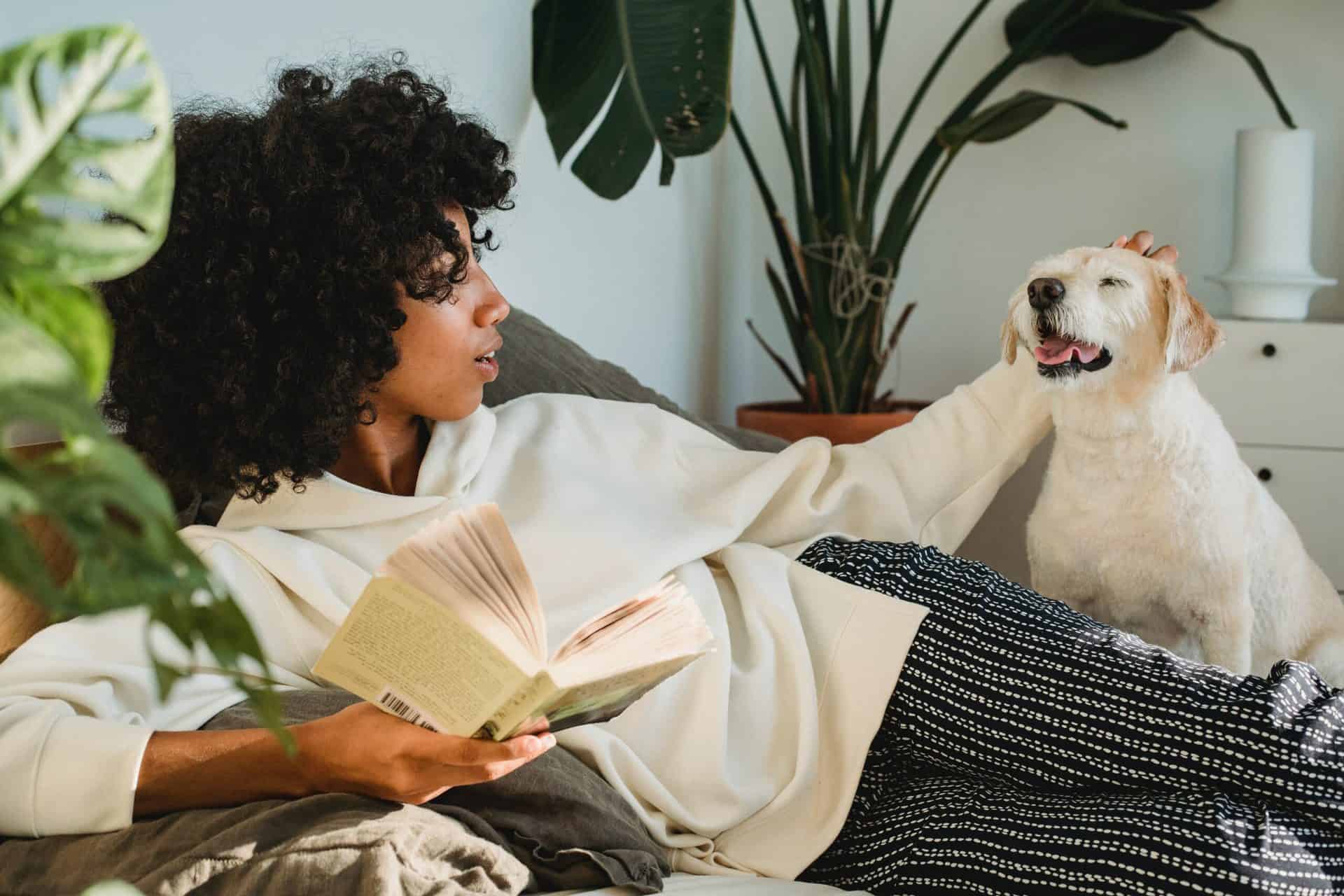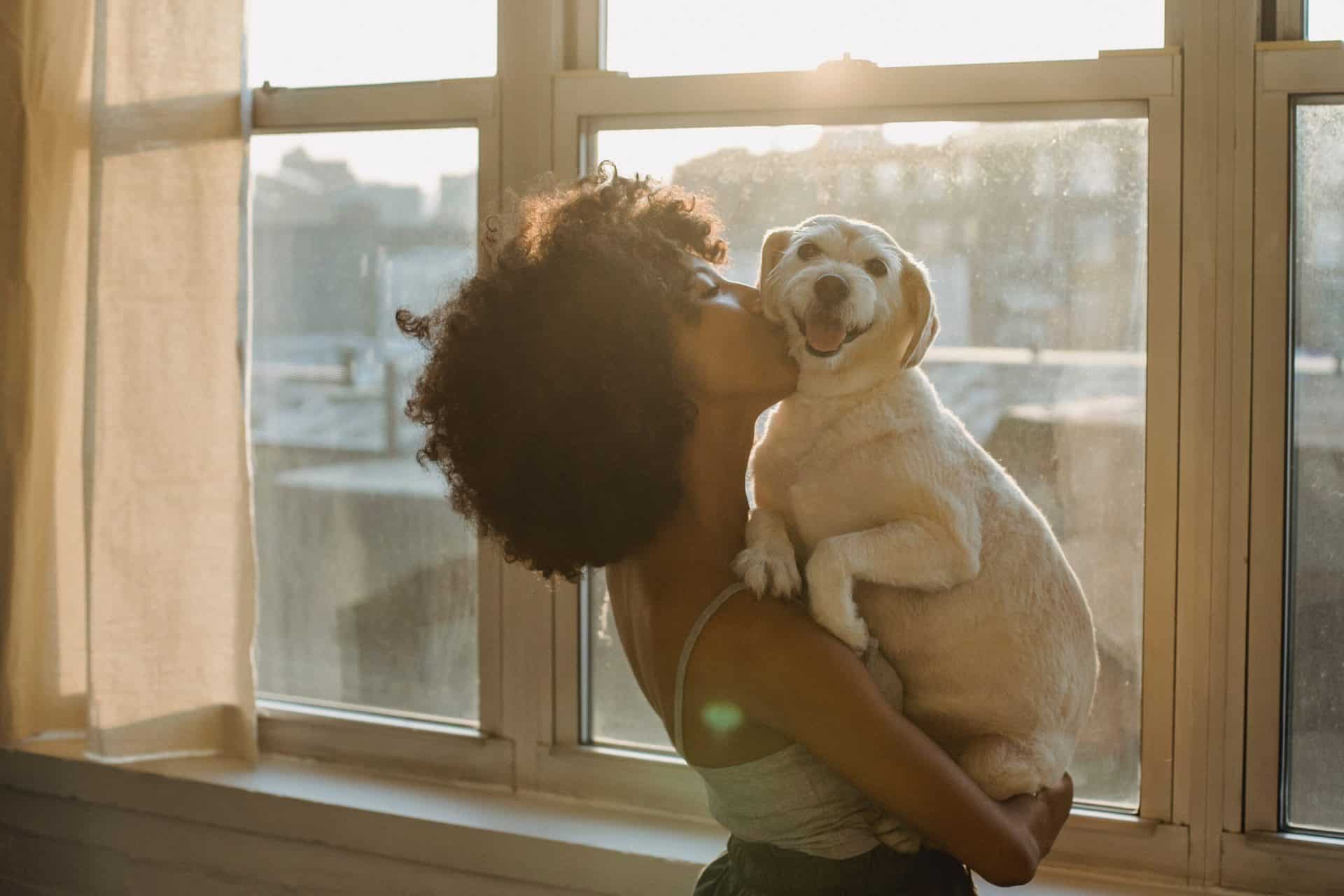

According to the pet food manufacturer’s association, a total of 3.2 million households took on a new pet during our year of lockdown, with cats and dogs being the firm furry favourites. Young people are the main drivers of this trend with the majority of new pet owners being 16-34 years old.
“Understandably, in a year when our social interactions were halted, people yearned for companionship,” says Lucia Dot owns her own dog training and behavioural business, Doherty Dog Training. Despite not being able to have one-on-one sessions with new owners and their pets, the virtual puppy workshops and crash courses have proved extremely successful.

“In November 2020 we noticed a lot of puppies coming in to be re-homed, we were also seeing so many more people out on the streets and in parks walking their new dogs, it seemed like a very good time to set up the business that we’d always talked about. A business to help people bring up their puppies and ultimately avoid new puppies ending up in re-homing centres.”
Through a period of social loneliness, pets of course have proved a great comfort to many of us. But they’re hard work, “Lots of people see owners and their dogs behaving beautifully in a park or coffee shop and can be fooled that raising a dog is easy, what they don’t see is the hard work and dedication, the sleepless nights that have gone into raising that pet and building that relationship behind the scenes,” says Lucia.
Lucia and her business partners Sarah and Ella have worked in animal rescue sanctuaries around the globe for over 10-years combined, and are only too familiar with seeing dogs who have been sent for rehoming because their owners couldn’t deal with bad behaviour – problems that Lucia believes can be fixed with the correct teachings, time and attention.
On the subject of breeds, Lucia tells us “Sadly, a lot of owners don’t consider what the dog is bred for and if this breed is the right decision for their lifestyle. It’s so important to consider the temperament and requirements of the breed you choose. How lively is that breed typically? How much exercise do they need, are they hunters/barkers, or quite happy to snooze on the sofa all day? You need to do the research and you need to have the correct amount of time for them.”
“A lot of the time people think that training a puppy is an easier and quicker job than it is. After the initial puppy years dogs then go through adolescence – just like a human – and this can be a hectic time. Like teenagers, their bodies are flooded with hormones which can make training and remembering what they have learnt harder for them. It isn’t necessarily just a dog being ‘badly’ behaved.”

Unfortunately, due to many common misconceptions, 5% of lockdown pups have since been given up for re-homing, which in theory could lead to a bit of a crisis in re-homing centres, that are already getting slightly over run. So, if you are looking to take on a puppy now, you’ve done your research and you have time to settle a dog in as part of your family, rehoming centres are very good places to start.
The Mental Health Foundation cites the companionship that comes from pet ownership as a great way to reduce anxieties. Pets provide a structure to the day. They’re a reason to get up and out. A study from Washington State University that tested the cortisol levels in the saliva of 249 students, found a distinct reduction in the stress hormone after interacting with dogs for just 10-minutes.
“Many people have found the lockdown to be the perfect time to introduce a pet into their home. Watching their personalities grow really is a joy. But all this time at home needs to also be managed. Make sure you leave your pup on its own in a room even if it’s for 5-minutes at first while you make a cup of tea, or go to the loo. They need to realise they’re ok on their own and you will come back this helps to prevent them from getting separation anxiety. As life resumes you will want to leave your puppy home alone for periods of time and the best way to do this is to build that up slowly so that they get used to it. Stage it out. Build up that time, 10 – 15 minutes, to half an hour, to two hours and so on,” advises Lucia.
Puppies also need to learn that as much as you love cuddling and playing with them, they need to be able to play with and entertain themselves, so a bunch of toys – especially hardy chew toys as they start to teeth are so important.

“It can be challenging for new owners, there’s so much information online and it can be hard for people to know what’s the best methods to train their dog, as every dog is different,” says Lucia. Doherty Dog Training runs virtual crash courses in all areas of puppy behaviour training that covers key development stages, separation anxiety, resource guarding.
“It’s so important to deal with any issues before they become a big problem – and it’s not one rule for all dogs. It depends on the breed, their environment, their backgrounds,” informs Lucia. Doherty Dog Training is also on hand to help wannabe-owners find the right breeders and choose the right breeds.
Header image credit: Helena Lopes @ Pexels
Feature images credit: Samson Katt @ Pexels


